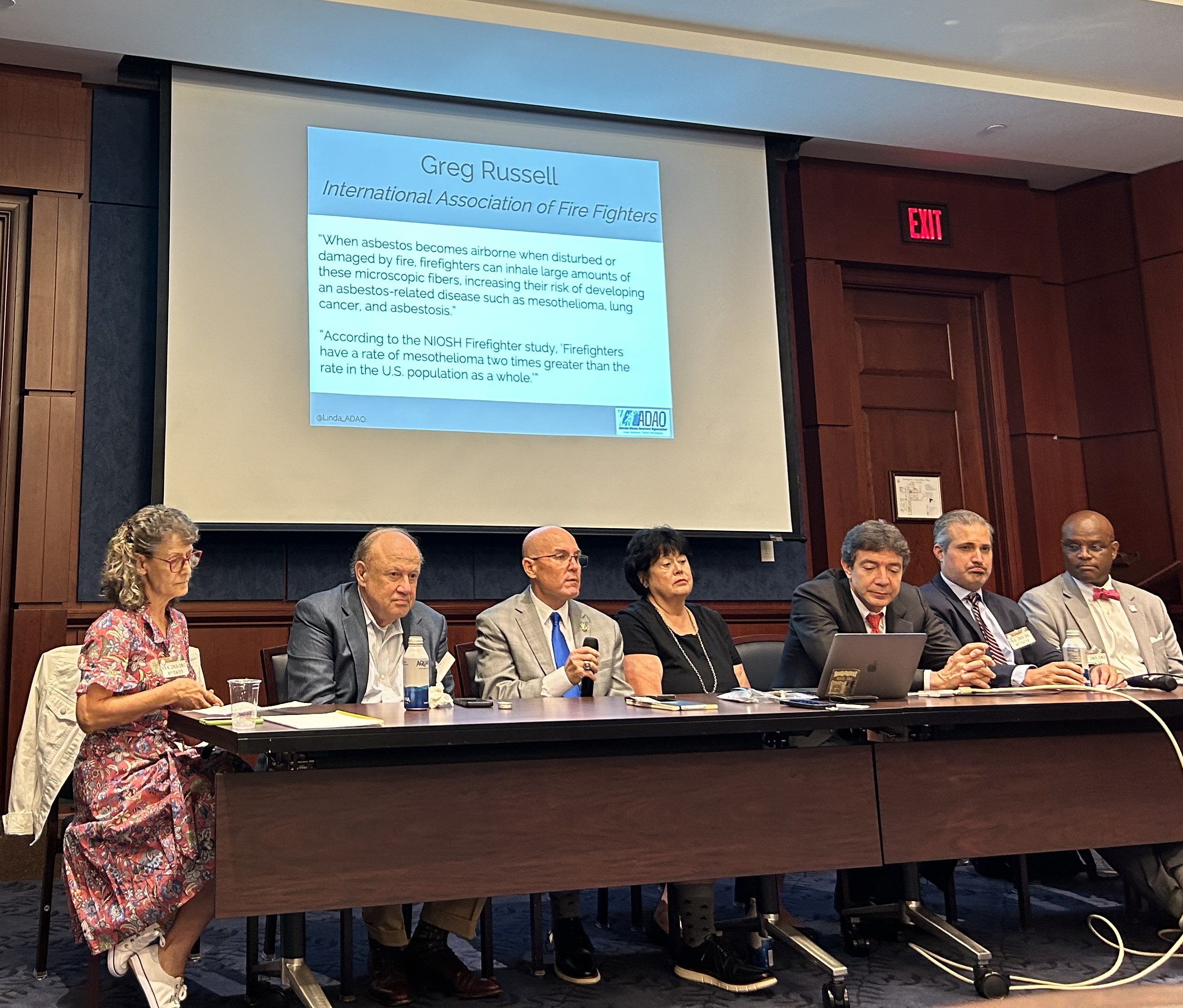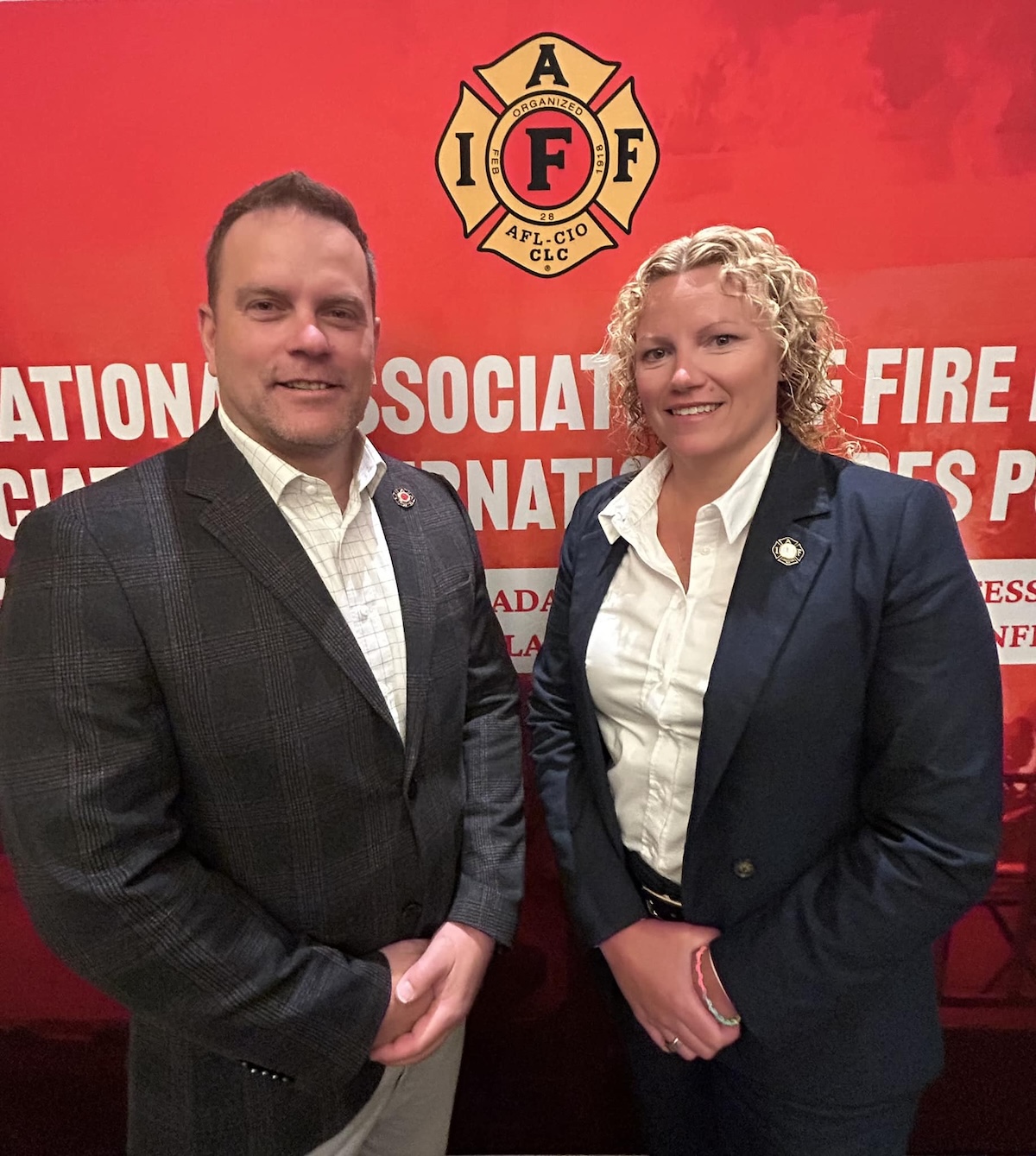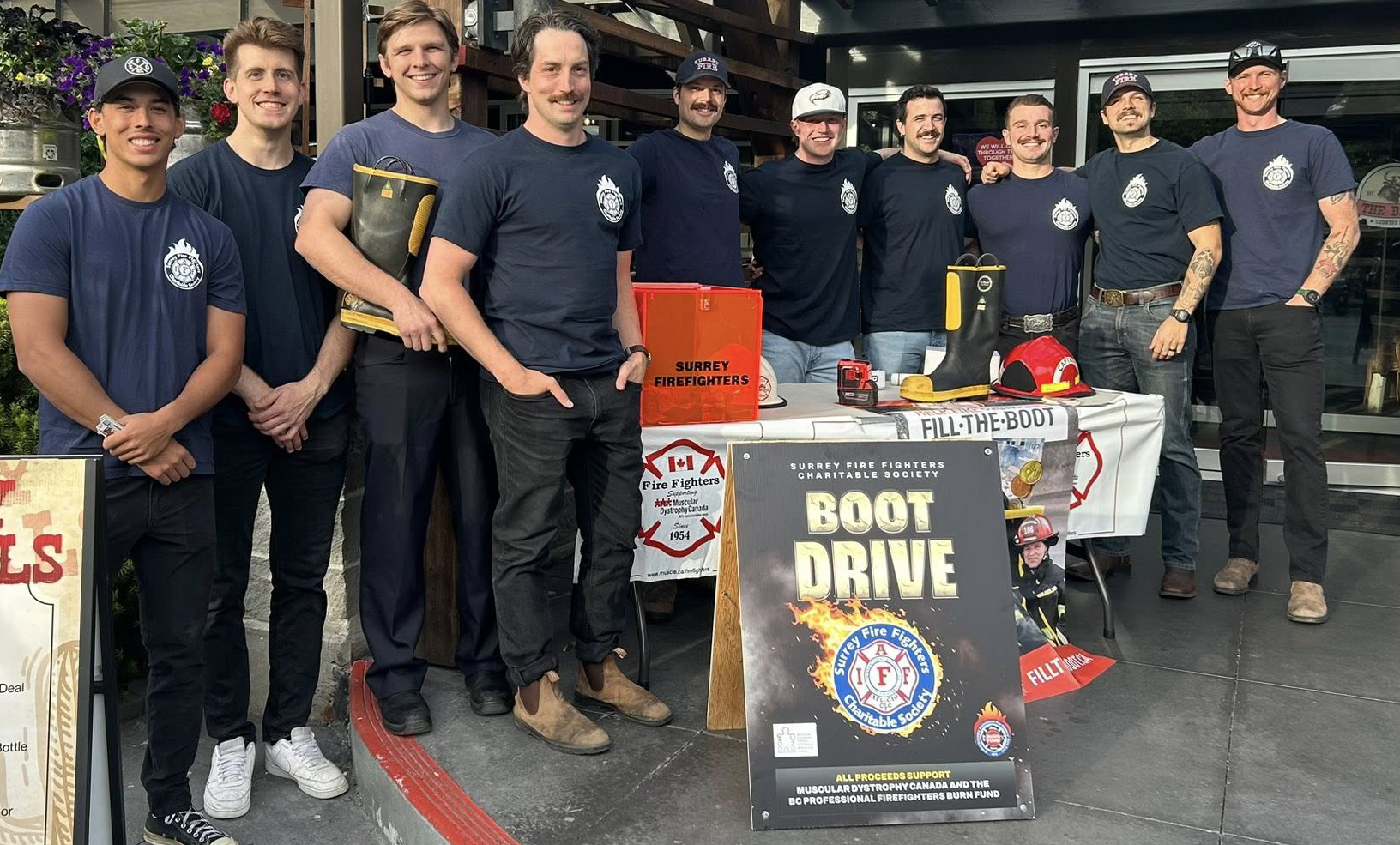
The number of asbestos-related deaths, including dozens of fire fighters every year, could be reduced with the implementation of an asbestos ban in the United States. That is why the IAFF is supporting the Alan Reinstein Ban Asbestos Now Act (S. 1069 and H.R. 2402), recognizing the critical need for action.
At a recent congressional staff briefing on the legislation, IAFF Governmental Affairs Representative Greg Russell explained that asbestos, a carcinogen known to cause mesothelioma and cancers of the lung, larynx, and ovaries, is a critical concern for fire fighters.
“Fire fighters are regularly exposed to airborne asbestos fibers as they respond to fires and other hazardous situations, making them 200 times more likely to develop related illnesses than the general public,” said Russell. “Occupational cancers have become the leading cause of death among fire fighters, and as a response, this union is fully committed to addressing this life-threatening issue head-on.”
Russell cited a recent warehouse fire in Richmond, Indiana, as an example of this critical threat. While Richmond Local 1408 members were able to contain the fire quickly, it took several days to fully extinguish it, resulting in long-term exposure to asbestos.
Older buildings like the Indiana warehouse are often insulated with asbestos due to its fire-resistant properties. In fact, the Environmental Protection Agency (EPA) found asbestos particles from the fire on more than 300 nearby properties.
“The situation in Indiana illustrates why the International Agency for Research on Cancer (IARC), an agency under the World Health Organization, has classified firefighting as a Group 1 carcinogen,” said Russell. “On behalf of the IAFF and its members, I urged the congressional staff to make good on their responsibility to the current and future generations of fire fighters by taking decisive measures like banning asbestos to protect their lives.”
More than 70 countries have already implemented a similar ban. If passed in the U.S., the Alan Reinstein Ban Asbestos Now Act would ban the import, use, and sale of the deadly carcinogen. It would require industries importing and using asbestos to transition to non-asbestos technology – a process already underway and proven to be economically feasible and environmentally beneficial.
The IAFF is supporting the bill as part of a coalition led by the Asbestos Disease Awareness Organization, which was co-founded by Linda Reinstein whose husband, Alan, died after being exposed to asbestos.
“If implemented, this asbestos ban legislation will protect all Americans, especially vulnerable workers, disadvantaged communities, consumers, first responders, and children who are most at risk of being exposed to this deadly carcinogen,” said Reinstein



